Abstract
Two subjects with retardation who exhibited generalized identity matching, but who had extensive histories of failure to acquire arbitrary matching, were exposed to a series of conditions designed to train separately the components of a two-choice conditional discrimination. First, the successive discrimination between the sample stimuli was established by programming a different schedule of reinforcement in the presence of each sample stimulus. Schedule performance was acquired and maintained by both subjects, but neither acquired arbitrary matching. To train the simultaneous discrimination between the comparison stimuli, 1 subject was then exposed to a series of simple discrimination reversals and subsequently failed to acquire arbitrary matching. Both subjects acquired arbitrary matching under a procedure that maintained both the sample and the comparison discrimination by first presenting entire sessions composed of one sample-comparison relation and then gradually reducing the number of consecutive trials with the same sample until sample presentation was randomized (schedule performance was maintained). Removal of the schedule requirement had no effect on arbitrary matching accuracy. Both subjects subsequently demonstrated control by relations symmetric to the trained relations.
Full text
PDF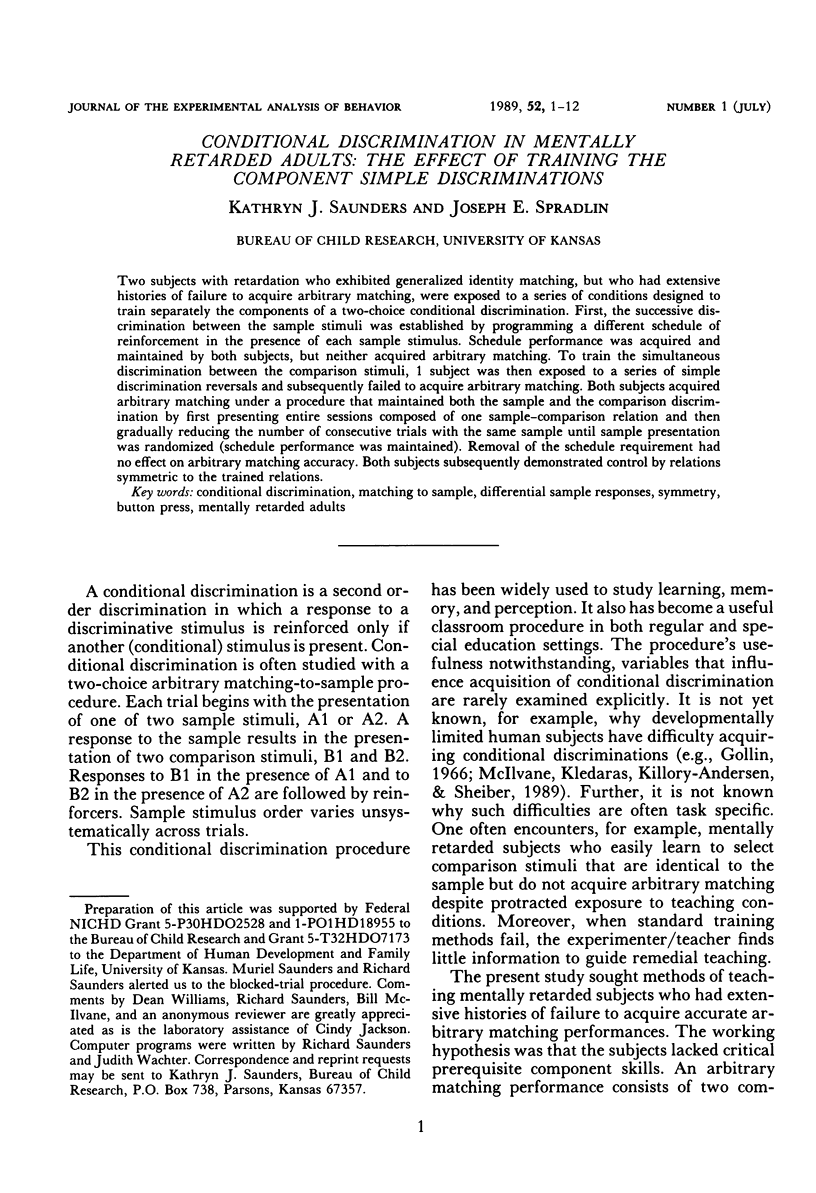
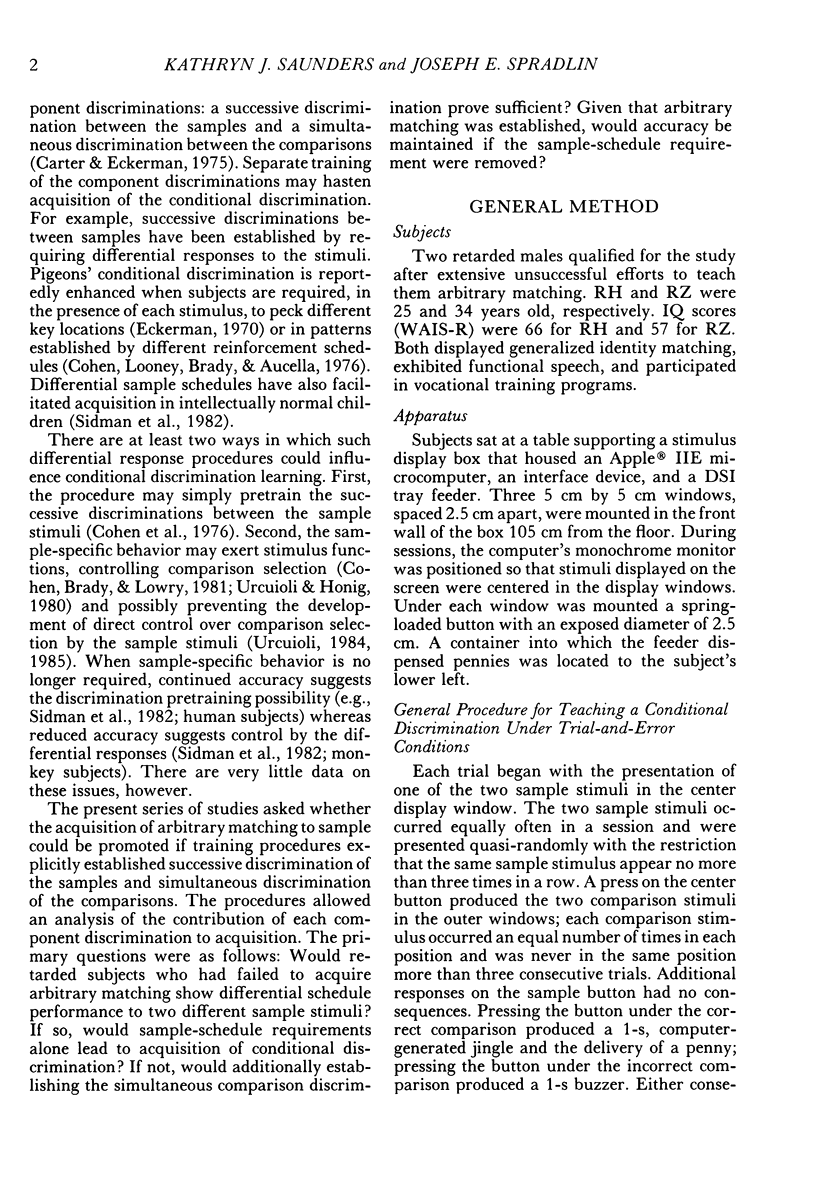
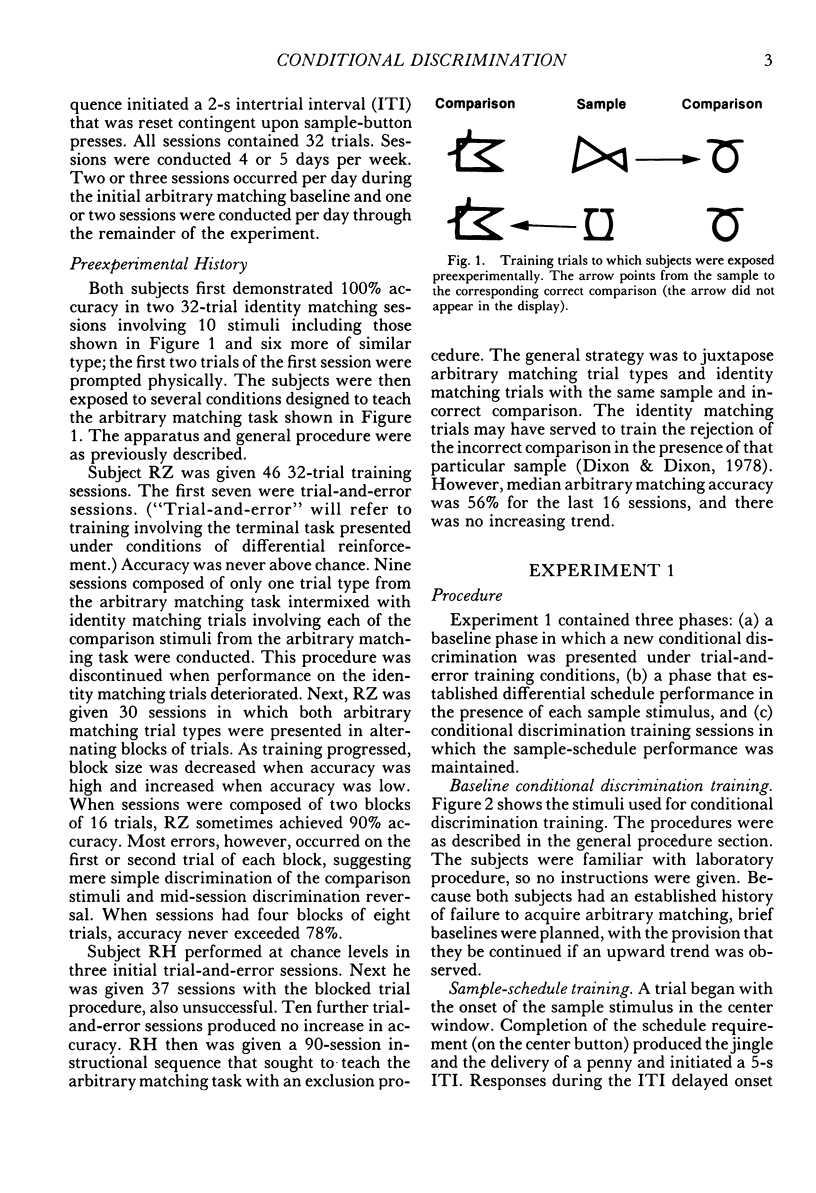
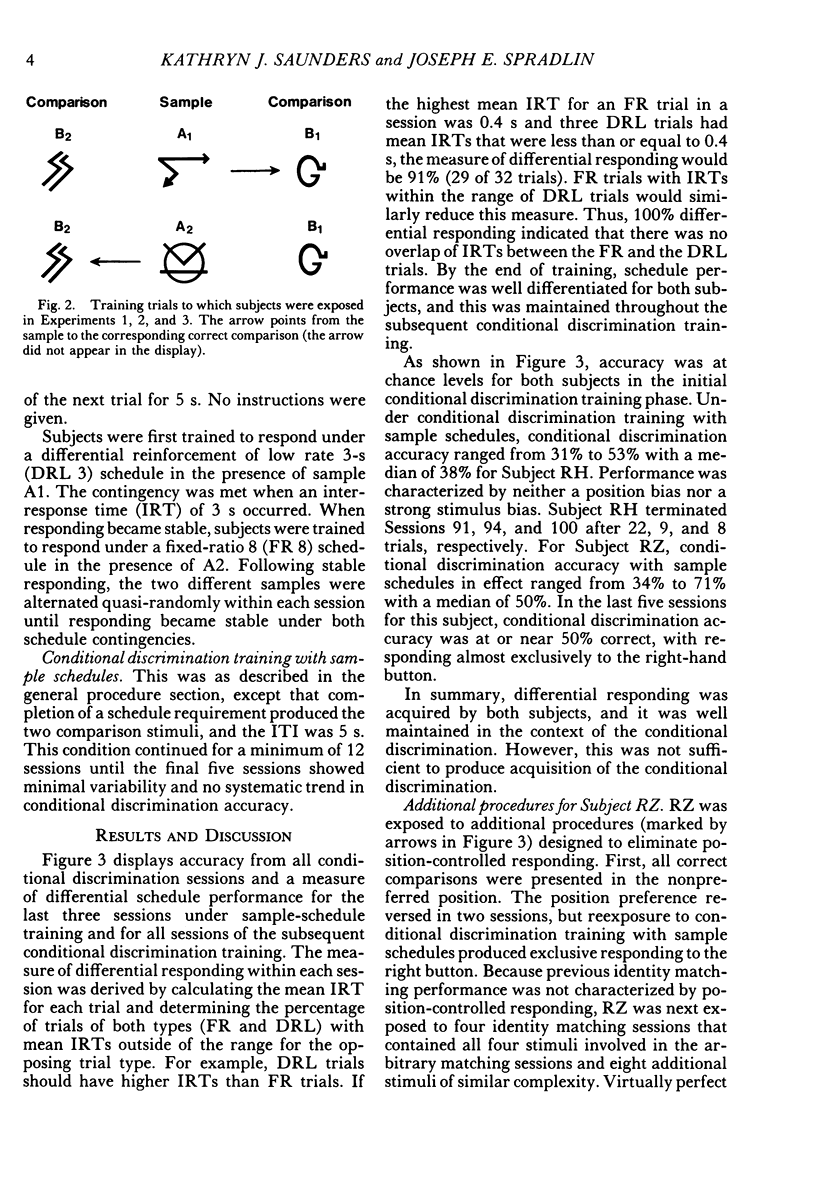
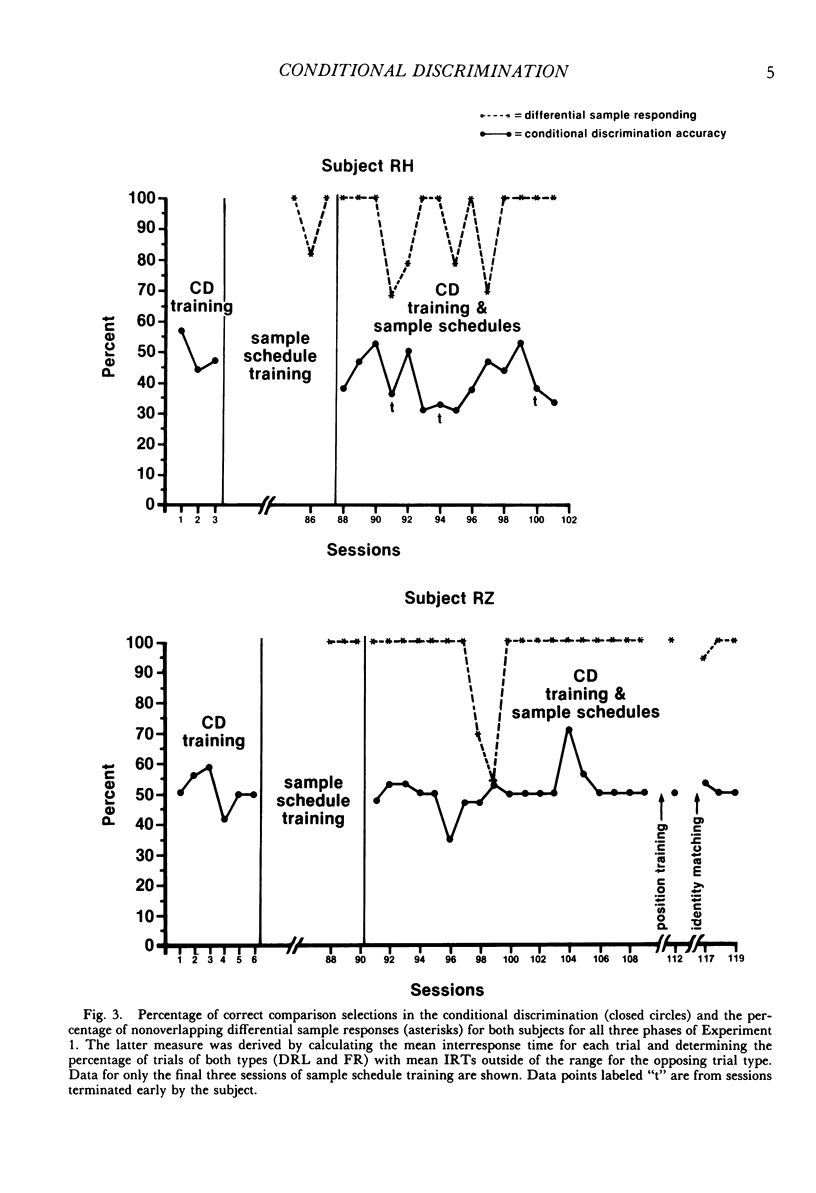
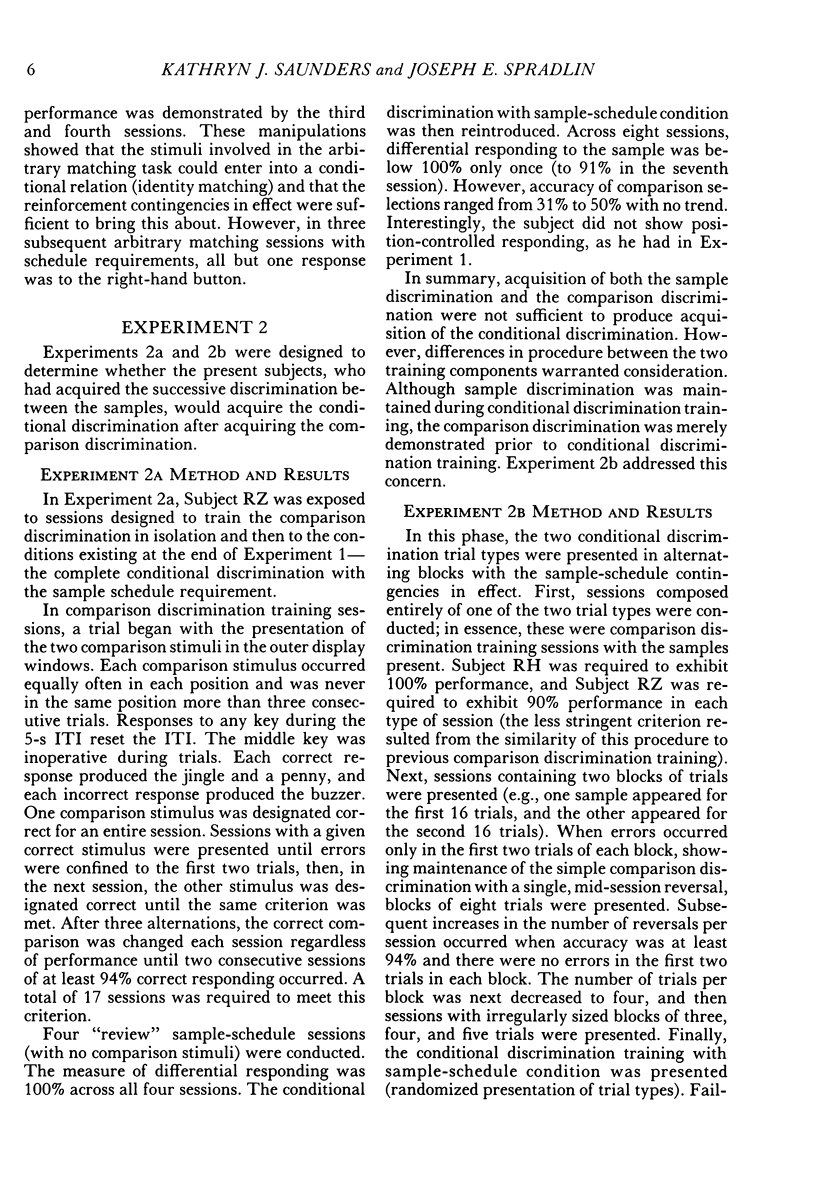
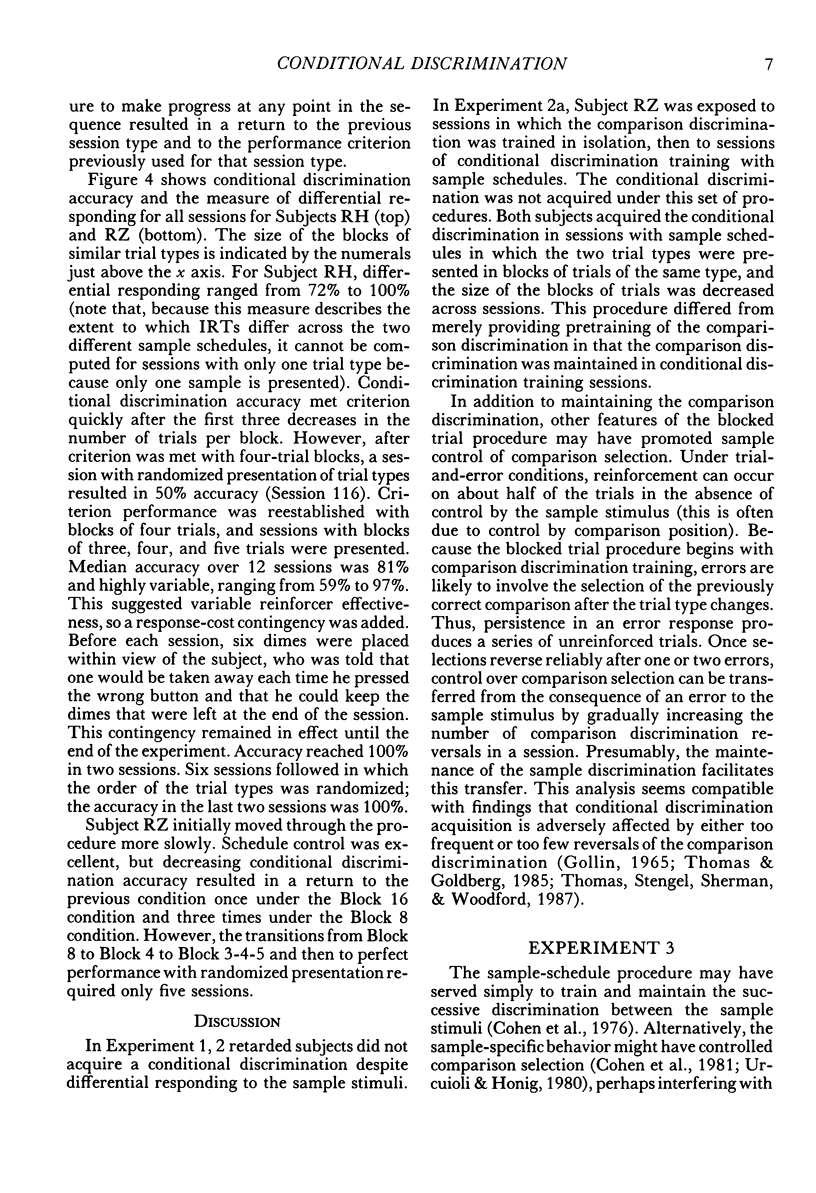
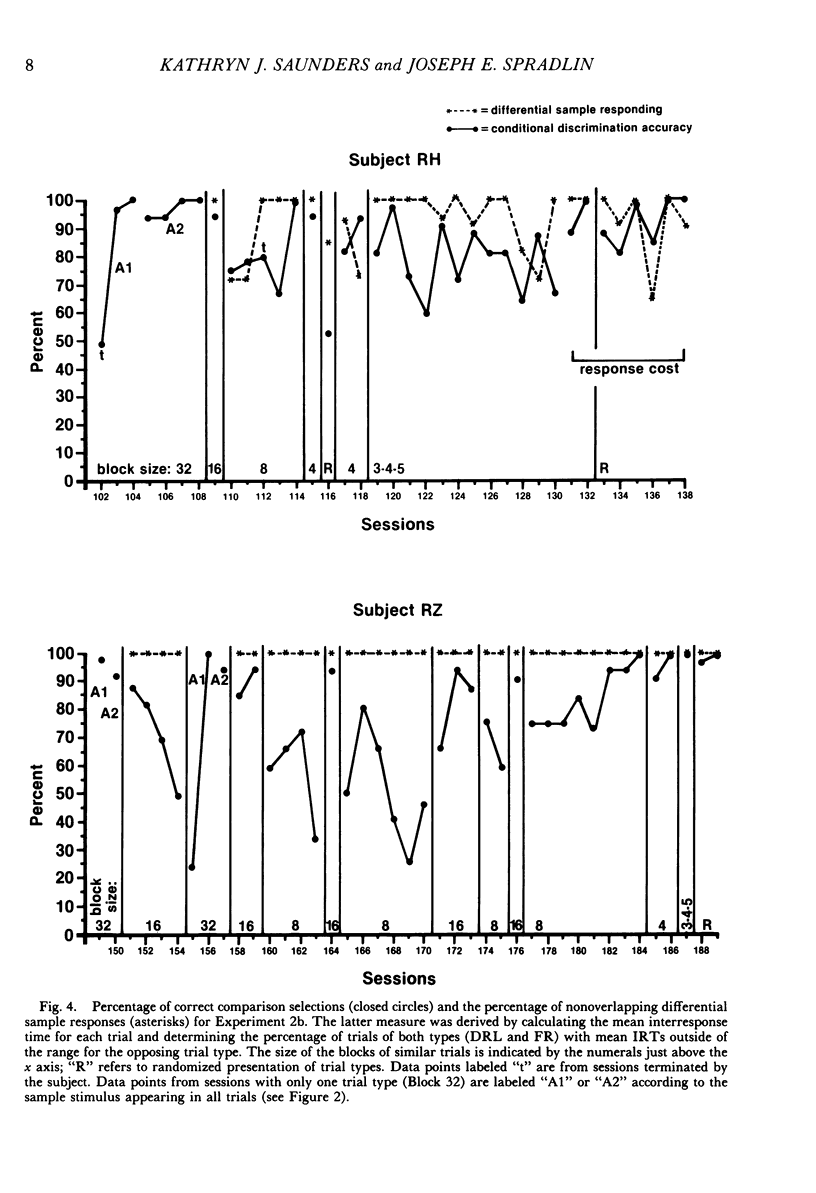
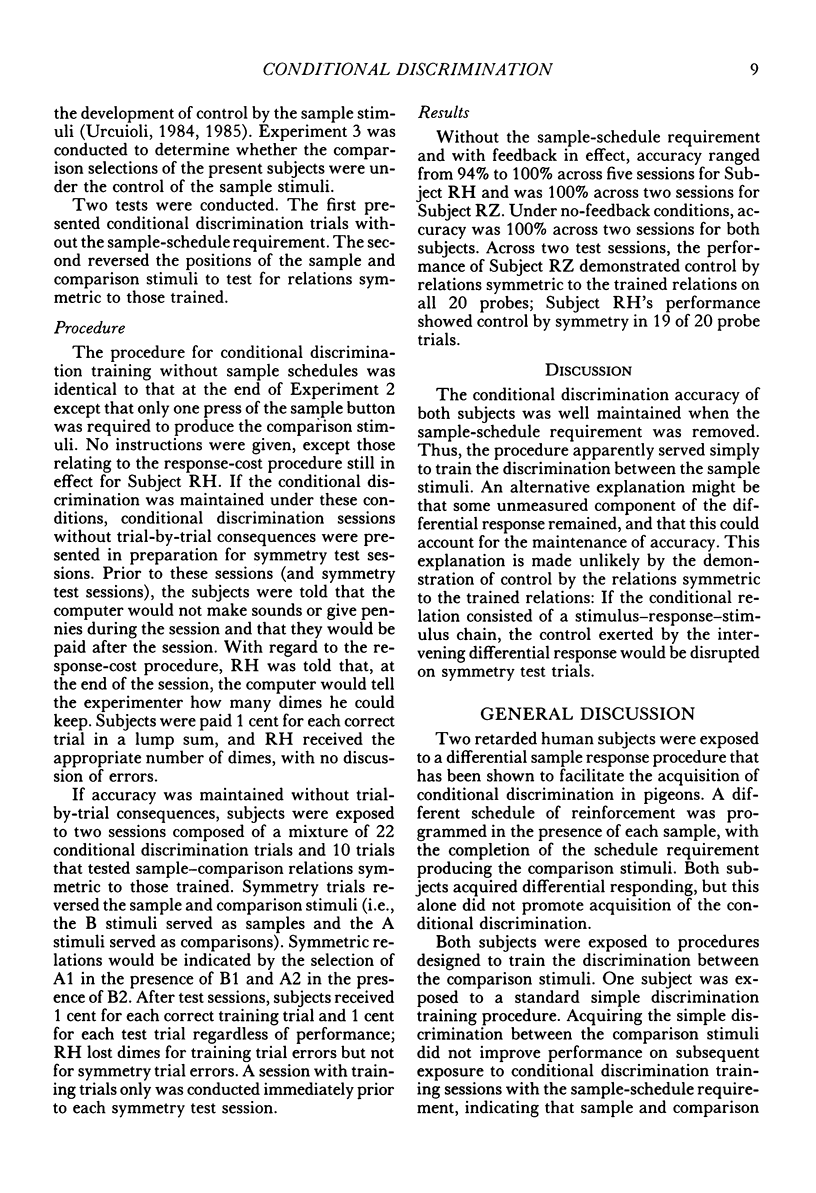
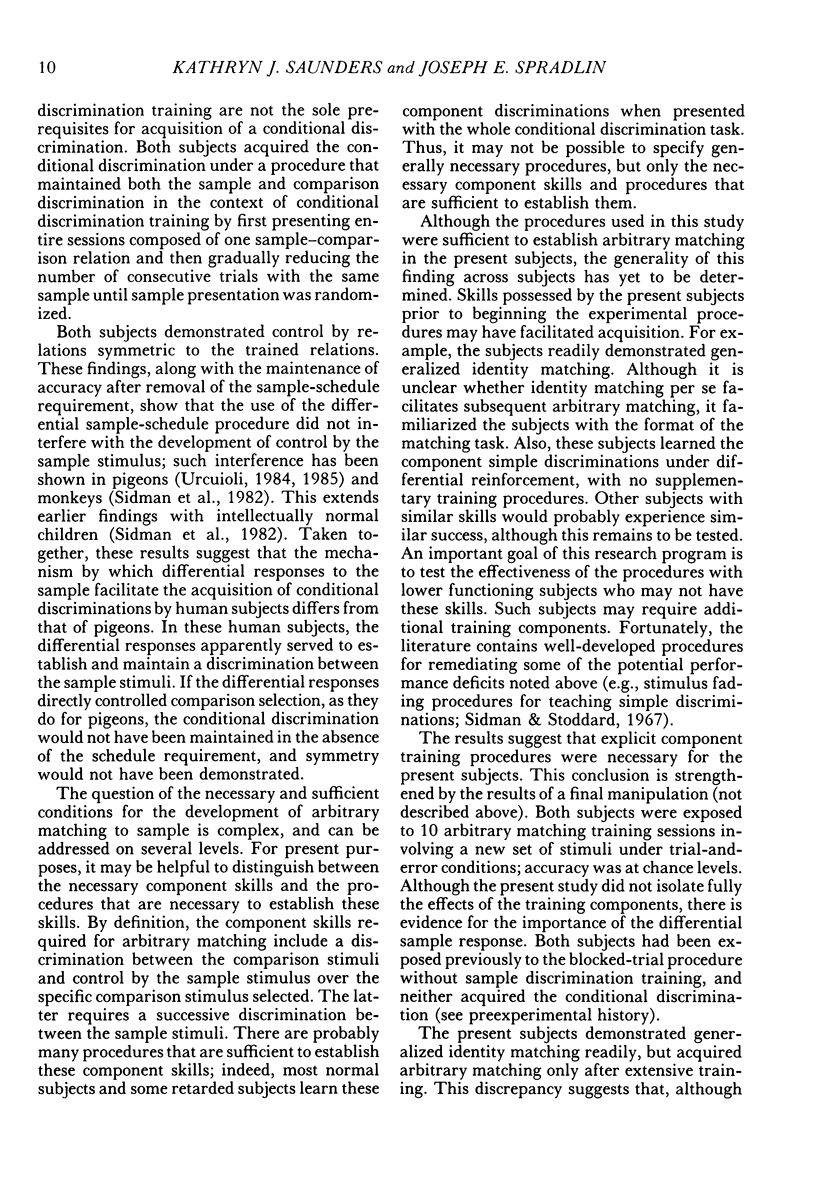
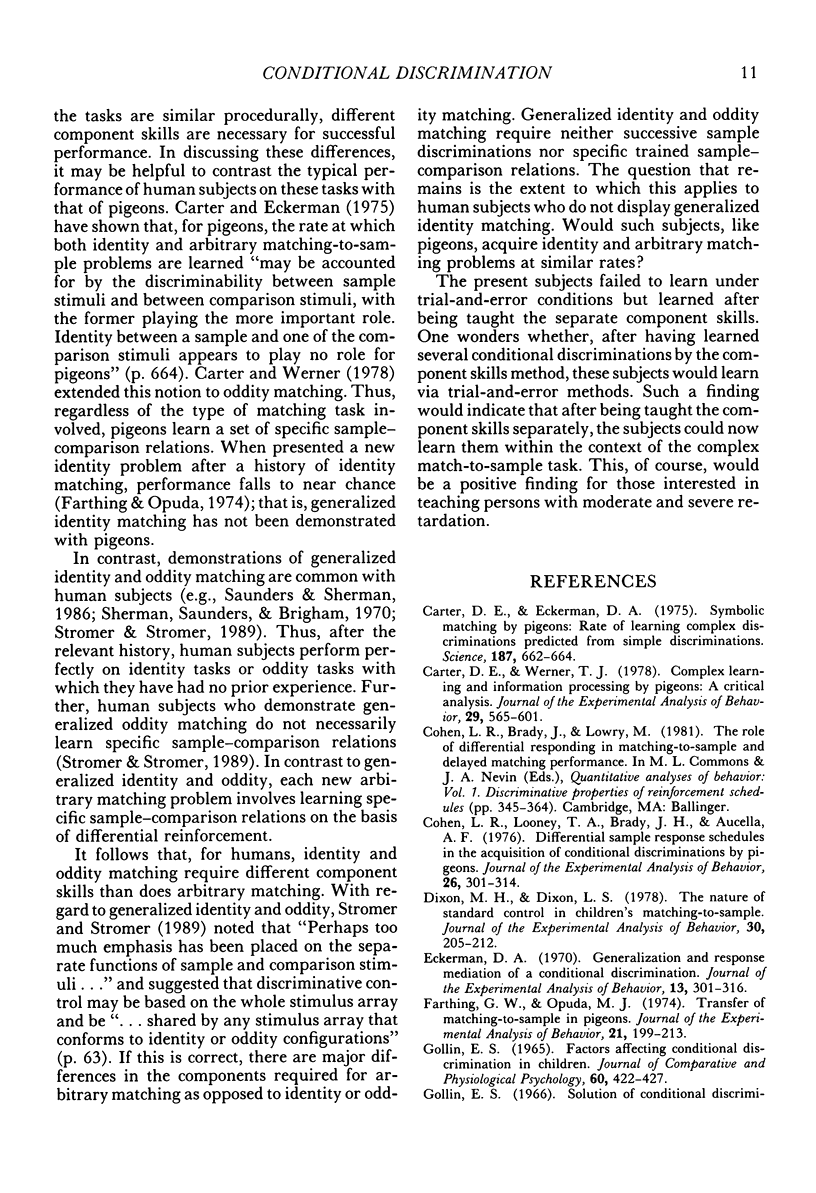
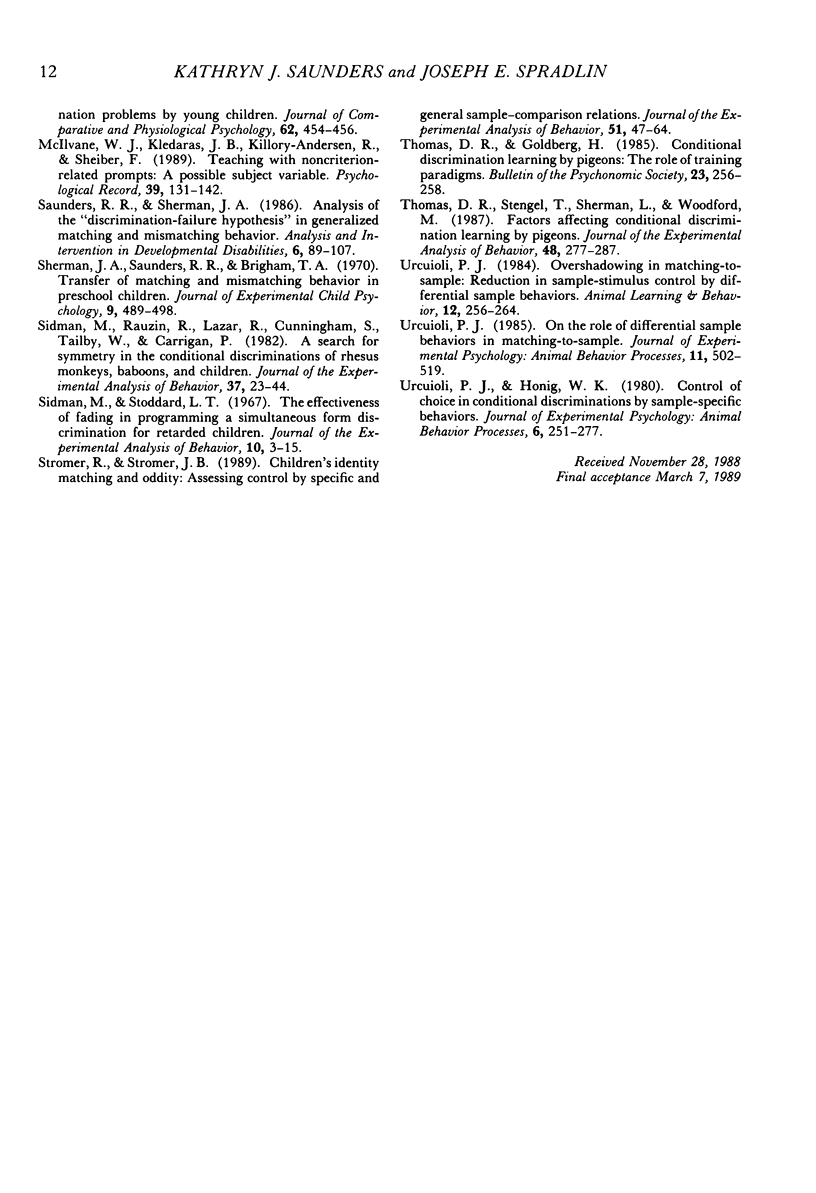
Selected References
These references are in PubMed. This may not be the complete list of references from this article.
- Carter D. E., Eckerman D. A. Symbolic matching by pigeons: rate of learning complex discriminations predicted from simple discriminations. Science. 1975 Feb 21;187(4177):662–664. doi: 10.1126/science.1114318. [DOI] [PubMed] [Google Scholar]
- Carter D. E., Werner T. J. Complex learning and information processing by pigeons: a critical analysis. J Exp Anal Behav. 1978 May;29(3):565–601. doi: 10.1901/jeab.1978.29-565. [DOI] [PMC free article] [PubMed] [Google Scholar]
- Cohen L. R., Looney T. A., Brady J. H., Aucella A. F. Differential sample response schedules in the acquisition of conditional discriminations by pigeons. J Exp Anal Behav. 1976 Sep;26(2):301–314. doi: 10.1901/jeab.1976.26-301. [DOI] [PMC free article] [PubMed] [Google Scholar]
- Dixon M. H., Dixon L. S. The nature of standard control in children's matching-to-sample. J Exp Anal Behav. 1978 Sep;30(2):205–212. doi: 10.1901/jeab.1978.30-205. [DOI] [PMC free article] [PubMed] [Google Scholar]
- Eckerman D. A. Generalization and response mediation of a conditional discrimination. J Exp Anal Behav. 1970 May;13(3):301–316. doi: 10.1901/jeab.1970.13-301. [DOI] [PMC free article] [PubMed] [Google Scholar]
- Farthing G. W., Opuda M. J. Transfer of matching-to-sample in pigeons. J Exp Anal Behav. 1974 Mar;21(2):199–213. doi: 10.1901/jeab.1974.21-199. [DOI] [PMC free article] [PubMed] [Google Scholar]
- Gollin E. S. Factors affecting conditional discrimination in children. J Comp Physiol Psychol. 1965 Dec;60(3):422–427. doi: 10.1037/h0022583. [DOI] [PubMed] [Google Scholar]
- Sidman M., Rauzin R., Lazar R., Cunningham S., Tailby W., Carrigan P. A search for symmetry in the conditional discriminations of rhesus monkeys, baboons, and children. J Exp Anal Behav. 1982 Jan;37(1):23–44. doi: 10.1901/jeab.1982.37-23. [DOI] [PMC free article] [PubMed] [Google Scholar]
- Sidman M., Stoddard L. T. The effectiveness of fading in programming a simultaneous form discrimination for retarded children. J Exp Anal Behav. 1967 Jan;10(1):3–15. doi: 10.1901/jeab.1967.10-3. [DOI] [PMC free article] [PubMed] [Google Scholar]
- Stromer R., Stromer J. B. Children's identity matching and oddity: assessing control by specific and general sample-comparison relations. J Exp Anal Behav. 1989 Jan;51(1):47–64. doi: 10.1901/jeab.1989.51-47. [DOI] [PMC free article] [PubMed] [Google Scholar]
- Thomas D. R., Stengel T., Sherman L., Woodford M. Factors affecting conditional discrimination learning by pigeons. J Exp Anal Behav. 1987 Sep;48(2):277–287. doi: 10.1901/jeab.1987.48-277. [DOI] [PMC free article] [PubMed] [Google Scholar]
- Urcuioli P. J., Honig W. K. Control of choice in conditional discriminations by sample-specific behaviors. J Exp Psychol Anim Behav Process. 1980 Jul;6(3):251–277. [PubMed] [Google Scholar]
- Urcuioli P. J. On the role of differential sample behaviors in matching-to-sample. J Exp Psychol Anim Behav Process. 1985 Oct;11(4):502–519. doi: 10.1037//0097-7403.11.4.502. [DOI] [PubMed] [Google Scholar]


